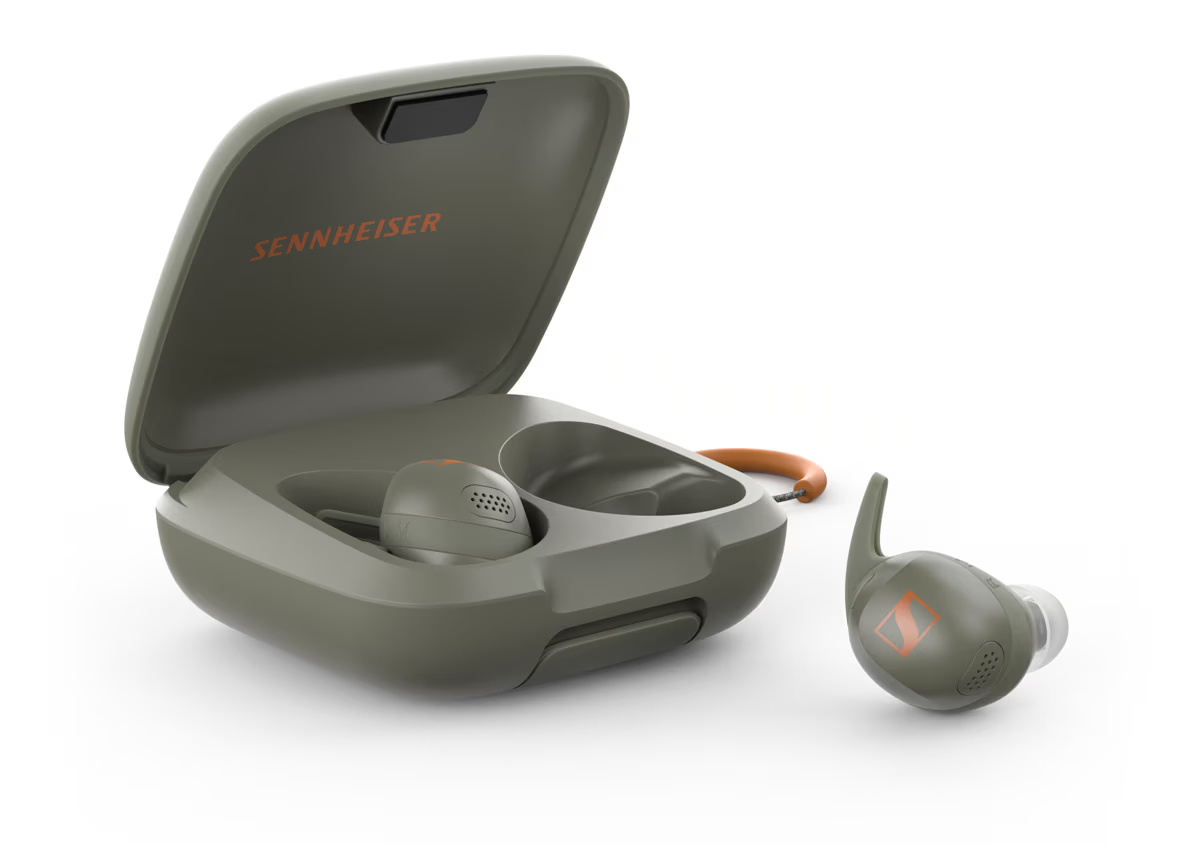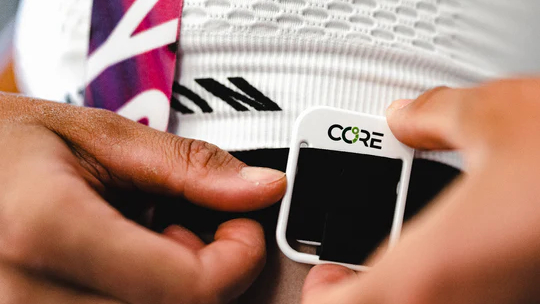Are Sennheiser's new heart-rate headphones the latest indoor cycling must-have?
New Momentum Sport headphones also track body temperature

This week, the Consumer Electronics Show - better known as CES - is underway in Las Vegas, and while the halls are awash with transparent TVs (seriously), flying surfboards (also true) and AI built into, well, everything, it's Sennheiser's new trio of wireless earbuds that have caught our attention.
Of the three new models, it's the Sennheiser 4 Momentum Sport that piqued our interest the most, because the German brand says it has a built-in heart rate monitor and body temperature sensor.
According to the brand, each earbud integrates a photoplethysmography (PPG) heart rate sensor. This is defined by the National Institute of Health as "a simple and low-cost optical technique that can be used to detect blood volume changes in the microvascular bed of tissue," and essentially means it uses similar tech to your smartwatch optical heart rate sensor.
For the inbuilt body temperature sensor, the details on the tech powering it are less clear.
Sennheiser says the headphones will transmit all the data it gathers to Apple and Garmin smart watches, Apple Health, Garmin Connect, as well as to Strava, Peloton, as well as Polar's biosensing Flow app ecosystem.
The future, or a gimmick?
Given the obvious risks of wearing headphones while riding outdoors, and the widely-accepted reduced accuracy of wrist-based optical sensors when compared to chest straps, it's unlikely that this idea will take over from chest straps. However, for indoor cyclists who are listening to music while riding indoors on apps such as Zwift, this could provide an interesting two-in-one solution. The price - £259.99 / €329.99 - won't save you much money over buying the items separately, but it will reduce the number of Bluetooth signals you need to connect up (many devices have a limit), and it's fewer devices you need to remember to charge.
The benefits could bear fruit, too. I'm no medical expert, but given temperature has been measured using ear thermometers by GPs since forever, it's not too big a stretch to believe that this could work.
Get The Leadout Newsletter
The latest race content, interviews, features, reviews and expert buying guides, direct to your inbox!
There has been a growing understanding in recent years of the correlation between core temperature, heat acclimation and cycling performance. Various teams including Ineos Grenadiers have trialled using the CORE Body Temperature Sensor, which is a small sensor that hooks onto a heart rate strap and sits against the ribcage.

With the rapid growth in the number of pro teams using heat acclimation and monitoring core temperature to aid performance, as well as riders' eagerness to keep core temperature down when warming up for races, it certainly seems like a viable option for pro teams or anyone chasing performance.
Of course, like a traditional heart rate monitor or a power meter, having a body temperature sensor won't immediately make you faster, but the information it captures could certainly help in the pursuit of marginal gains.
The headphone basics
Sennheiser has a pretty good reputation for sound quality, and given we're just cyclists, we'll save the audiophile expertise for our friends at TechRadar, but it's safe to assume the sound quality here will be up to scratch.
They will be water- and dust-proofed to an IP55 rating, come with a shock-proof chassis and clog-proof ear tips. They will run for six hours on a single charge, and the case - itself rated to IP54 with a USB-C port - will hold three full charges. This means you'll get up to 24 hours of playback while out and about. It also promises 45 minutes of playback from a 10 minute quick charge.
As mentioned, the price is £259.99 / €329.99 (USD to be confirmed) and for anyone interested, they will be available to buy on April 9.

Josh is Associate Editor of Cyclingnews – leading our content on the best bikes, kit and the latest breaking tech stories from the pro peloton. He has been with us since the summer of 2019 and throughout that time he's covered everything from buyer's guides and deals to the latest tech news and reviews.
On the bike, Josh has been riding and racing for over 15 years. He started out racing cross country in his teens back when 26-inch wheels and triple chainsets were still mainstream, but he found favour in road racing in his early 20s, racing at a local and national level for Somerset-based Team Tor 2000. These days he rides indoors for convenience and fitness, and outdoors for fun on road, gravel, 'cross and cross-country bikes, the latter usually with his two dogs in tow.